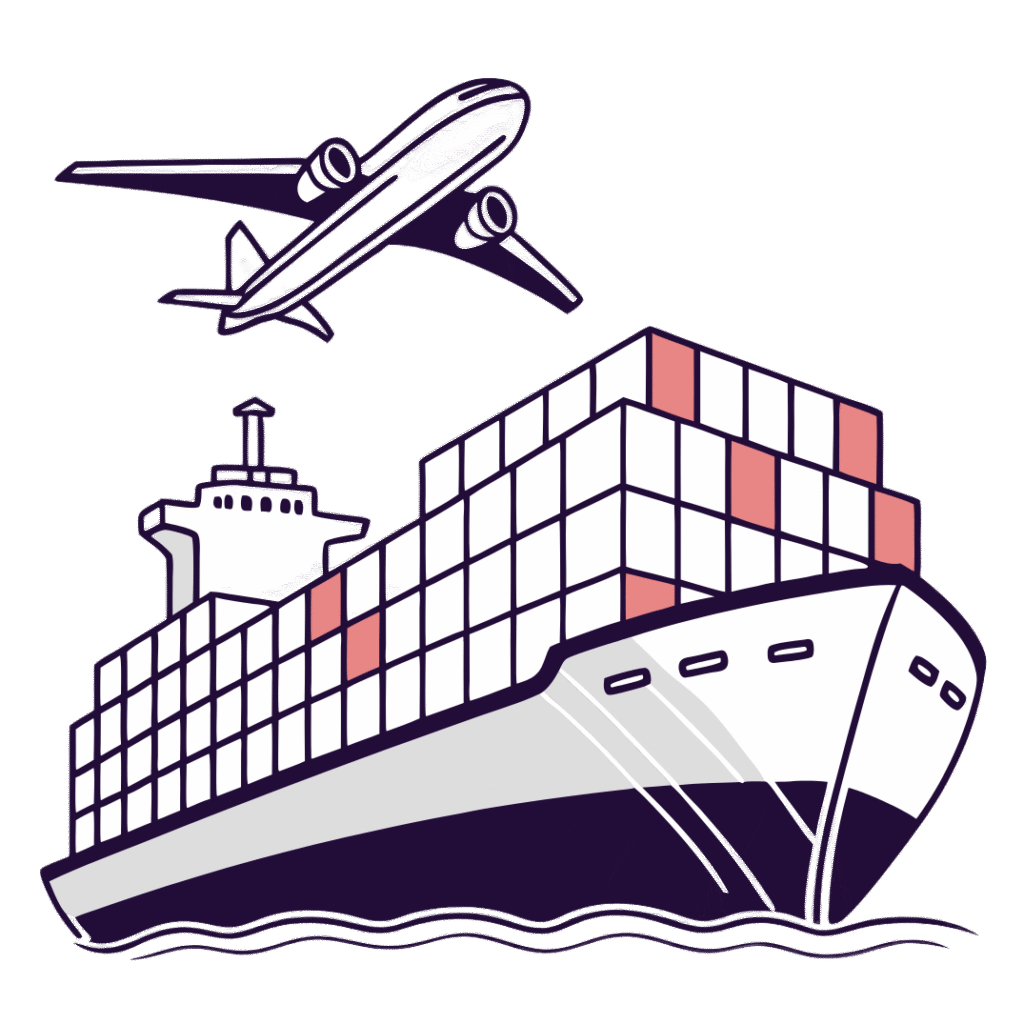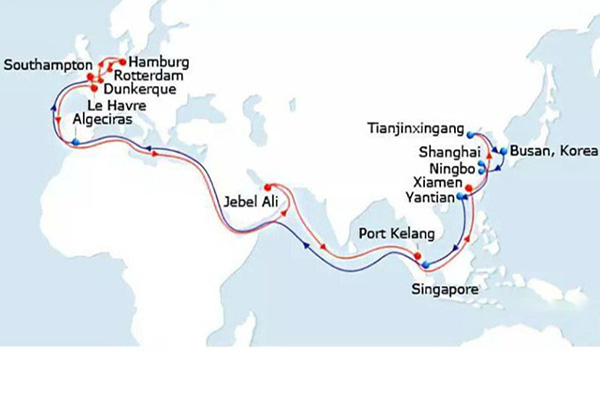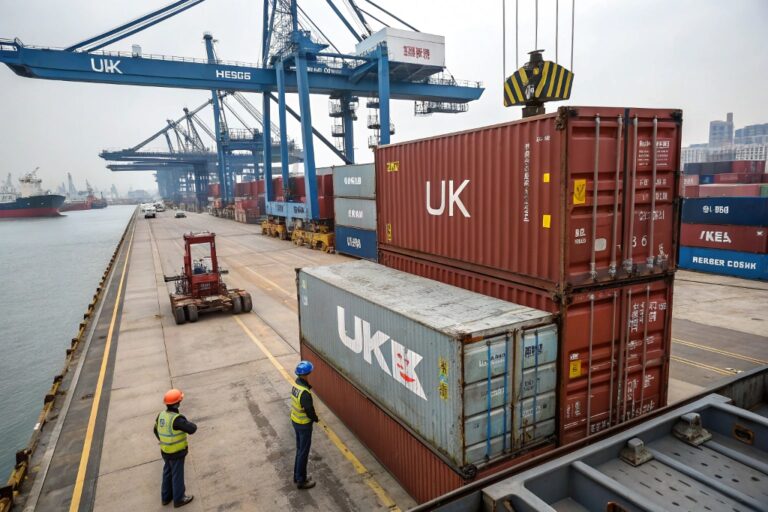Ocean freight forwarders play a crucial role in international trade by orchestrating the transportation of goods across oceans, ensuring timely and cost-effective delivery.
An ocean freight forwarder arranges shipping logistics, negotiates freight rates, manages documentation, and coordinates with various parties like carriers and customs to assure smooth sea transport. They act as intermediaries between the shipper and the carrier.

Understanding their capabilities can enhance your shipping experience, enabling you to navigate complex global trade intricacies with ease.
What are the roles and responsibilities of a freight forwarder?
The multifaceted roles of freight forwarders ensure the safe and efficient movement of goods from one point to another, streamlining international shipping processes.
Freight forwarders’ responsibilities include arranging transportation, managing shipments, negotiating freight rates, ensuring compliance with legal shipping requirements, handling documentation, and troubleshooting logistics issues that arise during transit.
Detailed Responsibilities:
- Logistics Coordination: Aligning different transport segments (truck, rail, ocean) for uninterrupted flow.
- Documentation Management: Precision in documentation prevents shipping mistakes or legal quandaries.
- Customs Negotiations: Expertise in navigating customs requirements speeds up transit.
- Risk Mitigation: Formulating strategies to mitigate risk factors such as weather or political issues.
- Cost Management: Effective rate negotiation and cost optimization aids budget adherence.
Freight forwarders are akin to project managers in the shipping domain—ensuring everything ticks along smoothly.
What is the main function of a freight forwarder?
Effective international trade hinges on precise logistics mastery, and freight forwarders are undeniably central to these operations.
The main function of a freight forwarder is to streamline the logistics of transporting goods internationally, addressing transportation, documentation, customs clearance, insurance, and regulatory compliance to provide seamless delivery solutions.
Core Functions:
- Transportation Coordination: Integrating multimodal transport for efficiency.
- Regulatory Compliance: Ensuring shipments meet global and local legal requirements.
- Warehousing and Inventory: Offering storage solutions for timing flexibilities.
- Customs Facilitation: Navigating customs jurisdictions to expedite goods movement.
- Shipping Advisory: Providing insights on the best routes and methods to ensure cost savings.
Their expertise can significantly trim logistical inefficiencies, presenting a path to smooth sailing.
What is the job description of a freight forwarder?
The freight forwarder’s job marries logistics with international regulatory frameworks, demanding intricate comprehension of global transportation norms.
A freight forwarder’s job description involves planning and executing international shipments, maintaining shipping documentation, liaising with multiple transport parties, overseeing customs processes, and optimizing shipping routes for cost-effectiveness and timeliness.
Functional Breakdown:
- Transport Planning: Blueprinting shipment paths and intermodal connections.
- Documentation Handling: Crafting pristine records like bills of lading, export declarations.
- Customer Communication: Regular updating on shipment progress and solving client queries.
- Efficiency Enhancement: Revise existing procedures for logistical efficiency.
- Advisory Role: Guide clients on judicious shipping methods and route selections.
They serve as the connective tissue between clients and the vast transportation network—a vital link in the supply chain.
What is the process of sea freight forwarding?
Understanding sea freight forwarding unveils the complexities hidden beneath the ocean’s calm surface, connecting continents through strategic navigation.
The process of sea freight forwarding involves booking shipping space with carriers, preparing the necessary shipping documents, liaising with port authorities, managing customs clearance, and executing cargo tracking until the goods reach their destination.
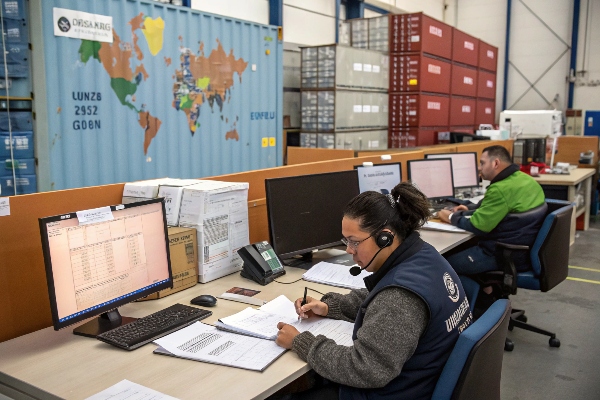
Step-by-Step Process:
- Booking Space: Securing slots in vessels for optimized movement.
- Document Preparation: Generating required paperwork for legal and logistical clarity.
- Customs Procedures: Tackling country-specific regulatory barriers efficiently.
- Cargo Tracking: Optimized monitoring for timely updates on shipment progress.
- Delivery Confirmation: Ensuring cargo reaches the destination intact and as planned.
Mastery in each step exemplifies a smooth transition from point A to point B in global seas.
What is a freight forwarder in China?
China, a key player in global commerce, boasts numerous freight forwarders who lead shipments through complex international waterways and market regulations.
A freight forwarder in China is a logistics expert specialized in navigating Chinese exports and imports, coordinating between manufacturers, international carriers, and local authorities to ensure seamless maritime, rail, and air shipping.
Functions in China:
- Port Authority Relations: Fluent interaction with pivotal port administrations.
- Local Expertise: Navigating China-specific bureaucratic sequences for compliance.
- Multimodal Connectivity: Aligning varied transport modes across China’s vast landscape.
- Market Insights: Providing counsel tailored to China’s industrial domains.
- Regulatory Guidance: Advising on regulatory dynamics pertinent to your shipment’s particulars.
China freight forwarders are pivotal to overcoming logistical complexities and ensuring smooth transit clarity.
What is the primary purpose of freight forwarders?
Freight forwarders operate within a bedrock of logistical knowledge, simplifying shipping complexities for global trade facilitators.
The primary purpose of freight forwarders is to liaise between shippers and carriers, coordinating shipments from origin to destination, mitigating logistical hurdles, and ensuring compliance with shipping regulations throughout the transport process.
Purpose Elements:
- Connection: Bridging gaps between varied stakeholders in the shipping chain.
- Efficiency: Streamlining transit processes to reduce bottlenecks.
- Security: Safeguarding shipments through insurance and tracking.
- Compliance: Navigating intricate jurisdictional requirements seamlessly.
- Cost Management: Providing insights for budget-friendly shipping selections.
Their role is indispensable for businesses eager to manage logistics with precision and security.
What do freight forwarders manage?
Freight forwarders are architects of movement—designing shipment paths while maneuvering varied logistics and regulatory landscapes.
Freight forwarders manage transport logistics, customs procedures, documentation, storage solutions, and relationship navigation among national and international shipping stakeholders to ensure successful product delivery across borders.
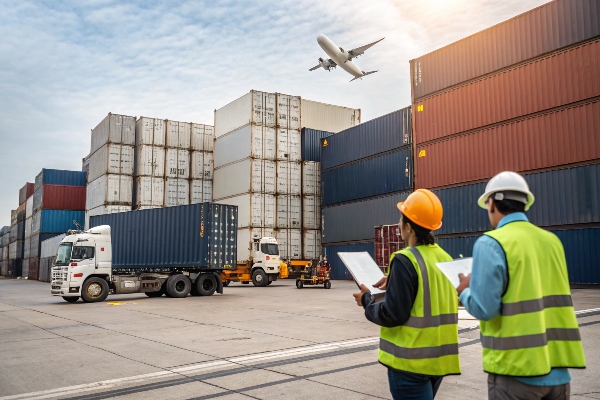
Managed Aspects:
- Transport Coordination: Crafting schedules and linking transportation modes.
- Customs Clearance: Gatekeeping through customs with precision documentation.
- Document Administration: Creating and archiving necessary paperwork.
- Storage Provisions: Offering warehousing through shipping transitions.
- Relationship Advocacy: Aligning multiple parties within shipping domains successfully.
The complex dance of coordinating large shipments demands skilled logistical management—for all component parts must work harmoniously.
Why do I need a freight forwarder?
Navigating the complexity of international shipping without guidance can cause delays and incur extra costs—providing a compelling reason for freight forwarder engagement.
You need a freight forwarder to streamline international shipments, reduce logistical complications, ensure regulatory compliance, offer expertise, and manage the coordination between various shipping entities effectively.
Justifications for Necessity:
- Cost-Efficiency: Guidance lowers costs and avoids unnecessary charges.
- Time-Savings: Expertise in streamlining processes saves valuable time.
- Risk Reduction: Professional handling minimizes shipment mishaps.
- Expert Insights: They provide specialized market knowledge and route selections.
- Simplified Process: Managing every transition phase allows focus on core business aspects.
Freight forwarders serve as logistical buffers against complexities that the uninitiated often face.
What makes a freight forwarder successful?
The success of freight forwarders depends on strategic multi-level skill applications, ensuring goods sail smoothly across global barriers.
Successful freight forwarders master logistics management, foster strong industry relationships, showcase impeccable problem-solving skills, deliver consistent customer satisfaction, and maintain compliance with international shipping laws, proving indispensable in global trade.

Success Factors:
- Skill Proficiency: Command over logistical intricacies.
- Relationship Fostering: Strong bonds within and without the industry.
- Problem Resolution: Quick response capabilities under duress.
- Client Satisfaction: Repeated commendable service quality.
- Regulatory Acumen: Expertise in fluctuating and multi-jurisdictional shipping laws.
Their resilience and adaptability ensure consistent fulfillment of challenges multinational trade casts their way.
What is the biggest benefit to using a freight forwarder?
Reaping key advantage hinges on comprehending the summary advantages freight forwarders contribute beyond simple logistical coordination.
The biggest benefit to using a freight forwarder is the seamless execution of complex international shipping operations, reducing costs, saving time, ensuring legal compliance, offering security, and providing market insights crucial for strategic decision-making.
Advantageous Contributions:
- Cost Reduction: Efficiently negotiated rates and logistics reduce overhead.
- Time Conservation: Professional executions trim procrastination in transit stages.
- Compliance Assurance: Smooth alignment with shipping regulations averts penalties.
- Secure Handling: Provides insurance and risk minimization guarantees.
- Informed Decision Making: Expert advice tailored to specific market dynamics.
Arrow-focused to mitigate hassles, they ensure shipping solutions conform to business needs and enhance operational efficiency.

